Main Content
Dr. David Reyes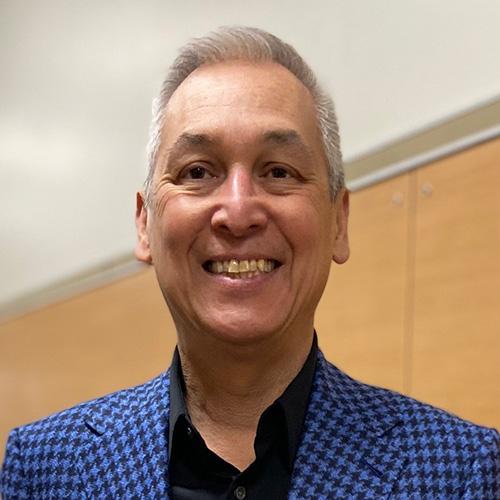
Message from the Dean
Greetings UW Tacoma School of Nursing & Healthcare Leadership Community –
Autumn marks not only a change in seasons but also the start to a new academic year. I want to wish all new and returning students a very warm welcome. We are so excited that you are here! This year, we also welcome our “newest” faculty members, Dr. Carmen Lewis and Dr. Tim Feagan who have joined the school as Assistant Teaching Professors. While new to their positions, they are well known to SNHCL as both have been part-time lecturers in the School of Nursing & Healthcare Leadership since 2022. You can find out more about them and all our faculty by visiting our school’s Faculty Profiles page.
The academic year is already off to a busy start as the school engages in significant work to review and revise the existing Healthcare Leadership program (more about this in the future), and continues to collaborate with colleagues across the Tri-campus School of Nursing to develop a common undergraduate nursing curriculum that will become the foundation for a future pre-licensure BSN degree program at UW Tacoma. In addition, a faculty search process has just begun to hire one new tenure-track assistant professor to begin in fall 2026.
There are many points of pride to share about our school but there are a few that are a few that are especially noteworthy to share with you. First, is a congratulations to Dr. Katie Haerling who is being inducted as a Fellow into the American Academy of Nursing. Cheers to Associate Professor Dr. Weichao Yuwen whose research team was awarded a $2.2 RO1grant award from the National Institute on Aging for pilot research focused on the use of AI in support of caregivers. As well, we are very proud that our MN program ranked 12th among nursing programs offering a master’s degree by US News & World Reports (2025). There are, of course, many other accomplishments and recognitions but I will save these for another time.
As you can probably tell, a lot of wonderful work and activities are happening in SNHCL. Despite the external forces or current challenges that might get in the way, we aren’t letting any moss grow between our toes (even if it rains). We remain committed to our students’ success, engaging in meaningful and innovative research and scholarship, and building authentic and reciprocal community partnerships. In sum, we will continue to live up to SNHCL’s mission to promote health and wellness anchored in an ethic of social justice for all communities.
Wishing You Good Health,

David Reyes, DNP, MPH, RN, PHNA-BC
Dean, School of Nursing & Healthcare Leadership
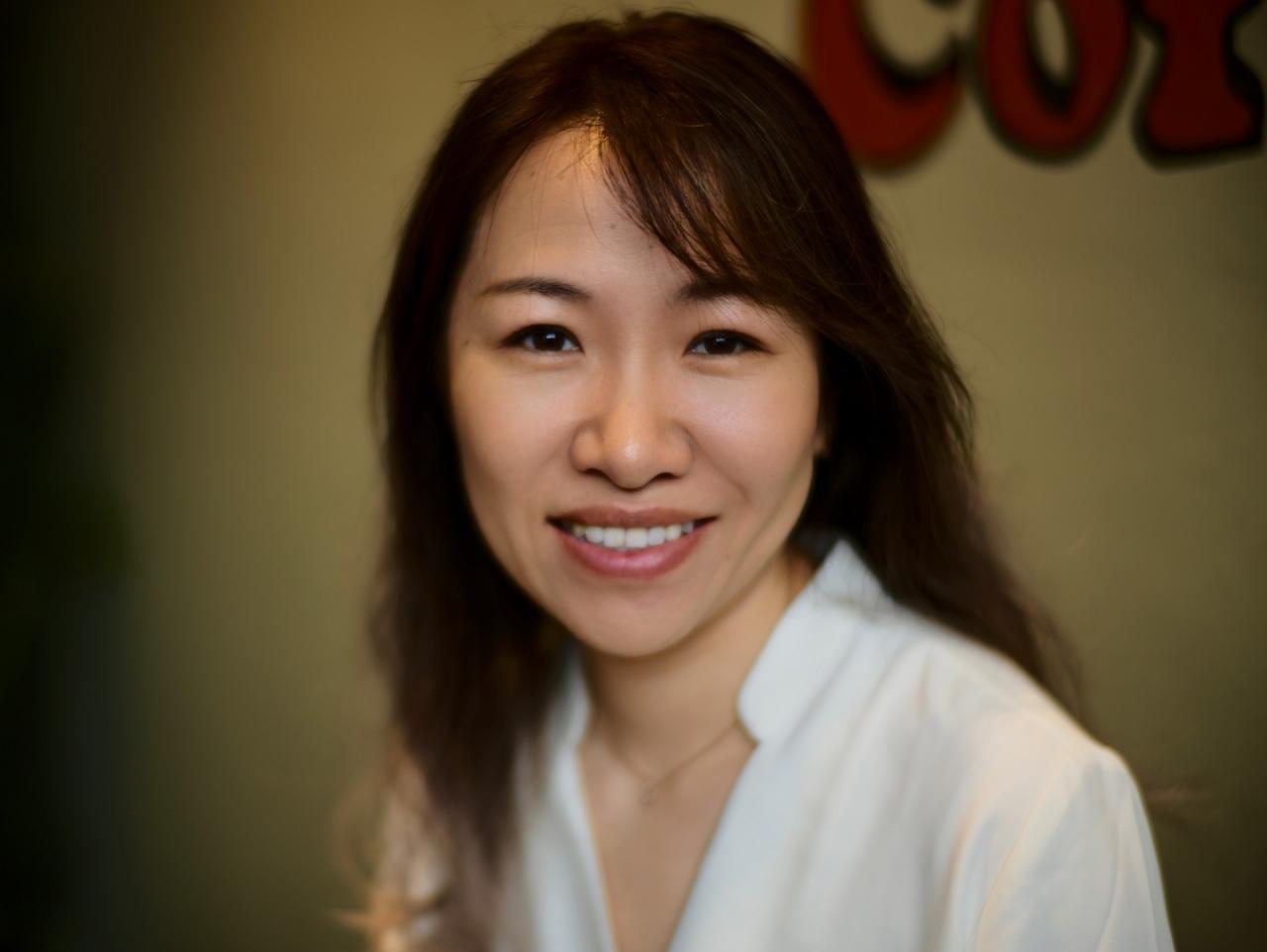
Weichao Yuwen
Blending Compassion and Technology: Dr. Weichao Yuwen’s Vision for the Future of Care
Associate Professor Dr. Weichao Yuwen is a faculty member in the School of Nursing and Healthcare Leadership at UW Tacoma. She is currently exploring how artificial intelligence can support both healthcare and education. Her early career focused on family caregiving and the challenges faced by those supporting loved ones with chronic conditions. Over time, she began asking how technology might ease these burdens. That question led to nearly a decade of research on chatbots and digital tools designed to help family caregivers prevent burnout and access timely support.
Her initial skepticism toward technology shifted after attending a conference where she heard about chatbots being used to help people quit smoking. The concept resonated with her; if a chatbot could provide quick, practical support, why not adapt the idea to caregivers who rarely have more than a few minutes a day for themselves? Today, Dr. Yuwen and her collaborators are building multilingual, culturally responsive chatbot tools, like Coco, that aim to serve families in English, Spanish, Chinese, and beyond.
Alongside research, Dr. Yuwen brings her expertise into the classroom. In courses on health informatics, she encourages students to experiment with AI tools, analyze their strengths and limitations, and imagine the future of healthcare technology. For other classes, she emphasizes openness and critical thinking, inviting students to use AI responsibly and reflect on how it shapes their learning. “AI is like any other tool,” she explains. “What matters is how thoughtfully we use it and how we balance efficiency with empathy in our care.” Her transparency has fostered a classroom culture where students feel both curious and cautious about technology’s role.
Dr. Yuwen’s co-directs the Responsible Health AI Lab with UW Tacoma colleagues in engineering and biomedical sciences, exploring applications that range from chronic illness management to cancer research. Funded by various support from UW, NIH (National Institute of Health), and NSF (National Science Foundation), the lab focuses not only on developing powerful tools but also on addressing the ethical and equity concerns that AI inevitably raises. “It’s not enough to ask what AI can do,” she says. “We also have to ask what it should do and who it should serve.”
Looking to the future, Dr. Yuwen sees enormous potential in AI to improve healthcare access and support caregivers worldwide. But what inspires her most is working alongside students and colleagues. “They bring fresh questions and ideas every day,” she says. “That energy keeps me going.” For her, the intersection of nursing, technology, and education is not just about innovation, it’s about creating tools that honor people’s humanity while opening doors to a healthier, more equitable future.
Listen to Dr. Weichao Yuwen's Meet and Greet Podcast episode Blending Compassion and Technology: Dr. Weichao Yuwen’s Vision for the Future of Care
Dr. Lucas McIntyre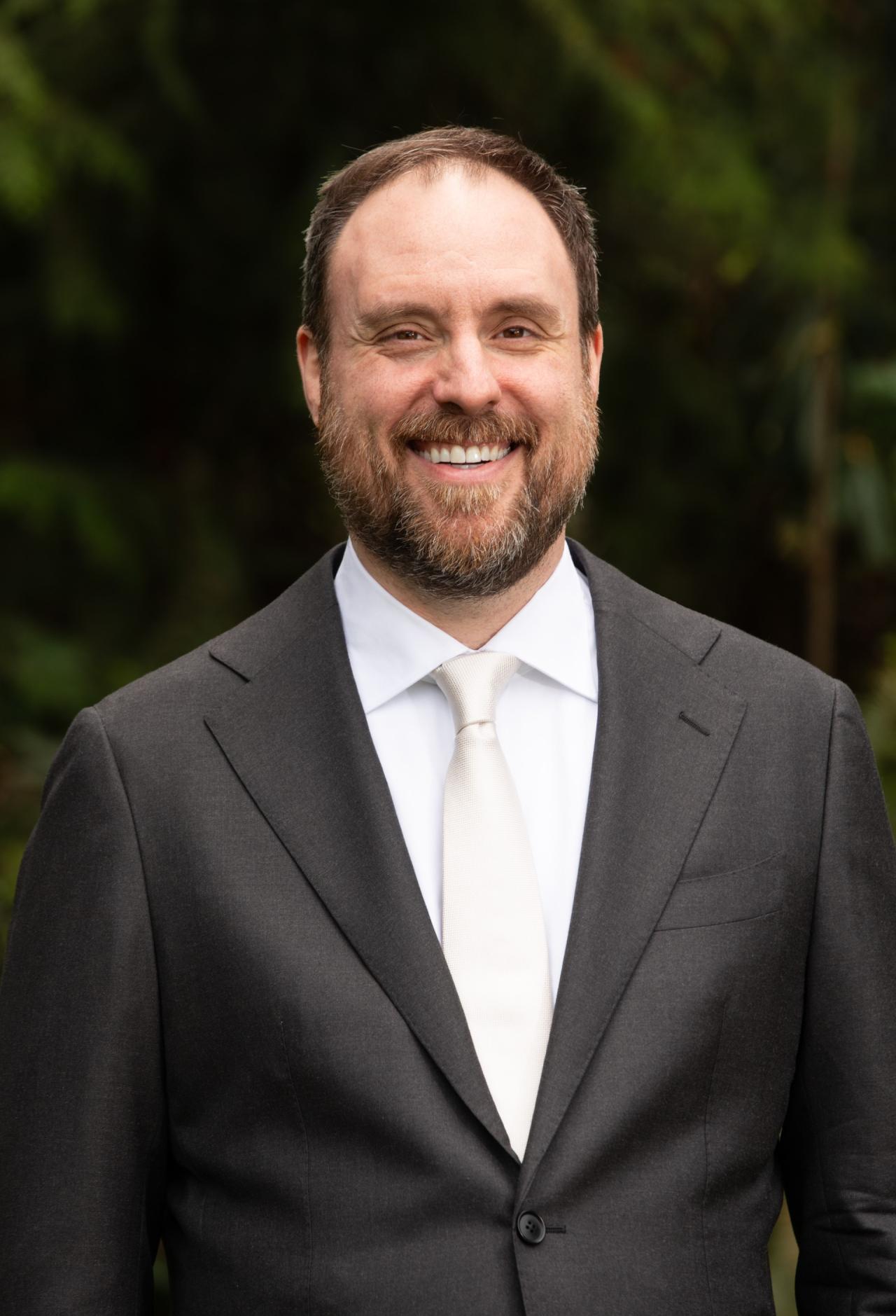
Building Bridges to Hope: Dr. Lucas McIntyre on Transforming Adolescent Mental Health
Dr. Lucas McIntyre, Medical Director of MultiCare’s Partial Hospitalization Program, has dedicated his career to building stronger mental health supports for adolescents. When he joined MultiCare in 2019 as a child and adolescent psychiatrist, he quickly recognized a critical gap in care: many young people needed more help than weekly therapy visits, but they didn’t require the intensity of an inpatient hospital stay. To bridge that divide, he created MultiCare’s Partial Hospitalization Program, a five-day-a-week after-school initiative that combines structured therapy with family support for teens experiencing severe mental health challenges. The program, based on Dialectical Behavior Therapy, now serves as a key resource for youth and families in the community.
Dr. McIntyre’s journey into adolescent psychiatry wasn’t straightforward. As an undergraduate, he spent time in India volunteering at one of Mother Teresa’s clinics where he was inspired by the impact of medical service. That experience initially drew him toward infectious disease but during medical school at the University of Washington he discovered an interest in psychiatry during a rotation at Harborview Medical Center. A visit to the Child Study and Treatment Center in Pierce County sealed the deal. Hearing young patients describe their progress and resilience deeply moved him and Lucas continued volunteering there long after his formal rotation ended. He says he’s most drawn to working with youth because of the “hope” it brings—the opportunity to help young people find strength and possibility even in their most difficult moments.
In his role today, Lucas values the chance to connect with adolescents in meaningful ways. Unlike the brief, monthly visits typical in outpatient psychiatry, the partial hospitalization program allows him to spend hours each day with patients, running groups, supporting families, and even bonding with teens over Wordle. For Dr. McIntyre these moments of authentic connection, often open more therapeutic doors than structured sessions alone. The most rewarding part of his work is to see a young person move from a place of despair to rediscover their goals, relationships, and joy.
Beyond the clinic, Lucas is committed to strengthening the broader system of youth mental health. He collaborates with UW Tacoma faculty, Tacoma Public Schools, and community partners to expand resources for counselors, nurses, and students. Together, they’ve created training, consultation, and research initiatives that support school staff in navigating difficult mental health challenges. Lucas credits listening, adaptability, and cross-disciplinary teamwork as the foundation of this progress.
At UW Tacoma, Dr. McIntyre collaborates with Dr. Sunny Cheng, faculty member in the School of Nursing and Healthcare Leadership, on initiatives that strengthen mental health education and community partnerships. Together, they help connect students with real-world experiences in behavioral health and promote greater understanding of adolescent mental health needs. Their collaboration reflects UW Tacoma’s mission to bridge academic learning with community impact.
Looking ahead, Lucas remains deeply grateful for the opportunity to serve. He believes behavioral health needs dedicated professionals at every level, from nurses and social workers to policy leaders and IT specialists, and he encourages students to consider careers in mental health. “For me,” he says, “the most meaningful thing is watching young people get their lives back.” His work is a reminder that with the right support, even in the toughest circumstances, there is always hope.
Listen to Dr. McIntyre’s Meet and Greet Podcast episode Building Hope: Dr. Lucas McIntyre on Transforming Youth Mental Health Care
David Antwi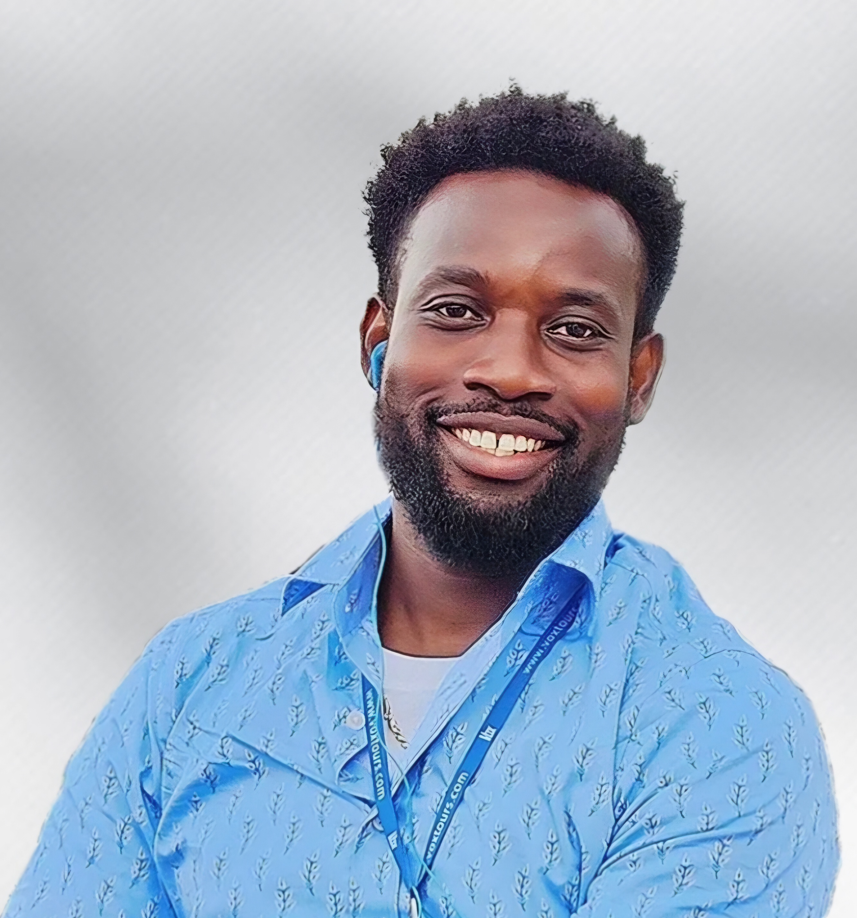
From Ghana to UW Tacoma: David’s Journey of Nursing, Creativity, and Community Impact
David’s journey into nursing began in Ghana. He grew up helping at his grandfather’s clinic and saw early on how access to healthcare could save lives. After losing his brother to food poisoning, he made a promise to learn more about medicine. Years later, after moving to the United States, he worked in business and warehouses before returning to healthcare. He became a Certified Nursing Assistant in Ohio and spent nearly ten years in long-term care, assisted living, and home health. Those experiences confirmed his purpose and led him to pursue an Associate Degree in Nursing from Shoreline Community College and then a Bachelor of Science in Nursing from UW Tacoma.
David entered UW Tacoma’s RN to BSN program to meet future career goals, but it became much more than that. Through courses in community health, he gained a deeper understanding of how nurses impact lives beyond the hospital. His experience with the Opening Minds Through Art (OMA) program left a strong impression. Working with people living with dementia and their families helped him see how creativity can improve quality of life. “It opened my eyes,” he says. “I saw how art could support both patients and caregivers.”
He also found inspiration in his professors, including Dr. Jingyi Li, who encouraged him to explore dementia care and community health more deeply. Their enthusiasm changed how he saw nursing. “They cared about what they taught and who they taught,” David says. “It made me more confident and more passionate about my work.” That encouragement helped him launch his own project, a YouTube channel called Healthcare Beyond Scrubs.
Through his channel, David shines a light on the many roles that make up healthcare, from respiratory therapists and nutritionists to case managers and social workers. He also shares the human side of the profession, including its challenges. “We talk about the hard parts too,” he says. “It’s not to criticize, but to learn and grow.” He hopes that by starting honest conversations, nurses can support one another and reduce burnout.
David desires to help others extends beyond his career. He runs a scholarship foundation in Ghana that supports children who excel in school and lack financial means to continue their education. So far, the program has helped thirteen students attend school. He hopes to expand it in the years ahead. “My goal is to help as many people as I can,” he says. “Through nursing, through education, and through sharing stories that matter.”
Listen to David’s Meet and Greet Podcast episode Beyond Scrubs: David Antwi on Purpose, Passion, and the Power of Nursing
Dimity Prenger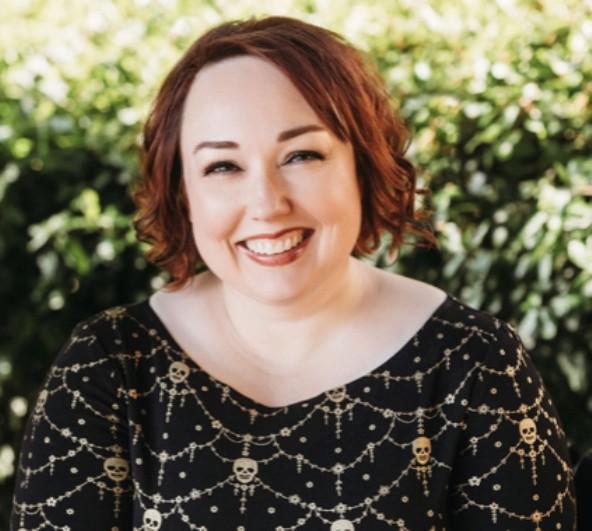
Finding Purpose Through Nursing and Community Impact
Dimity Prenger’s path to nursing has been anything but traditional. Originally from Spokane, she spent sixteen years as a Cardiac Catheterization Laboratory technologist before deciding it was time for a new direction. After years of long hours in acute care, Dimity wanted a career that offered more flexibility and opportunities to serve her community. She earned her Associate Degree in Nursing (ADN) at Tacoma Community College during the height of the pandemic, seamlessly transitioned into UW Tacoma’s RN to BSN program, and is now pursuing her Master of Nursing degree, applying her studies toward her interest in public health.
Dimity says she never planned to be a nurse but healthcare has always been part of her life. Growing up in a small Idaho town, she often accompanied her father, a physician, to the local hospital emergency room where he set bones and stitched wounds. Later, her own career in cardiology gave her a front-row seat to life-saving procedures and the demands of acute care. When she left the Cath Lab, it was nursing that opened the door to new possibilities. “I knew I didn’t want to be the stereotypical bedside nurse,” she recalls. “Nursing offered so many paths outside the hospital and that freedom is what drew me in.”
At UW Tacoma, Dimity has found a supportive community and the chance to explore her passion for public health. She credits faculty like Dr. Robin Evans-Agnew with helping her discover and explore areas of interest such as food insecurity and period poverty. The flexibility of the program has allowed her to tailor her coursework around these issues, conducting research and shaping projects that align with her values. “It was difficult at first to get used to the open-ended assignments,” she admits, “but once I realized I could focus on what mattered to me, it was freeing.”
Looking ahead, Dimity envisions herself working in the public health sector, designing or supporting programs that serve what she calls the “silent needy”—individuals and families who may not qualify for safety net programs but still struggle with poverty, housing instability, and access to basic needs. She hopes to use her nursing knowledge and public health training to advocate for these communities and help create lasting, self-sustaining solutions.
For Dimity, returning to school has been both challenging and transformative. She encourages other nurses and students to embrace opportunities, volunteer for projects, and not be afraid to explore what they don’t want to do as much as what they do. “I never thought I’d get a master’s degree,” she says. “But this program has helped me figure out not just where I want to go, but how I can make a difference along the way.”
To hear more about Dimity’s journey and her passion for public health, listen to her episode on the SNHCL Meet & Greet podcast Dimity Prenger: Finding Purpose Through Nursing and Community Impact
Join the SNHCL Newsletter Mailing List
The School of Nursing and Healthcare Leadership sends out a quarterly newsletter that includes updates of alumni, faculty, and the SNHCL community. If you would like to receive the newsletter, complete this form to be added to the mailing list.
Do you want to get updates on the SNHCL community?
Follow us on social media!
